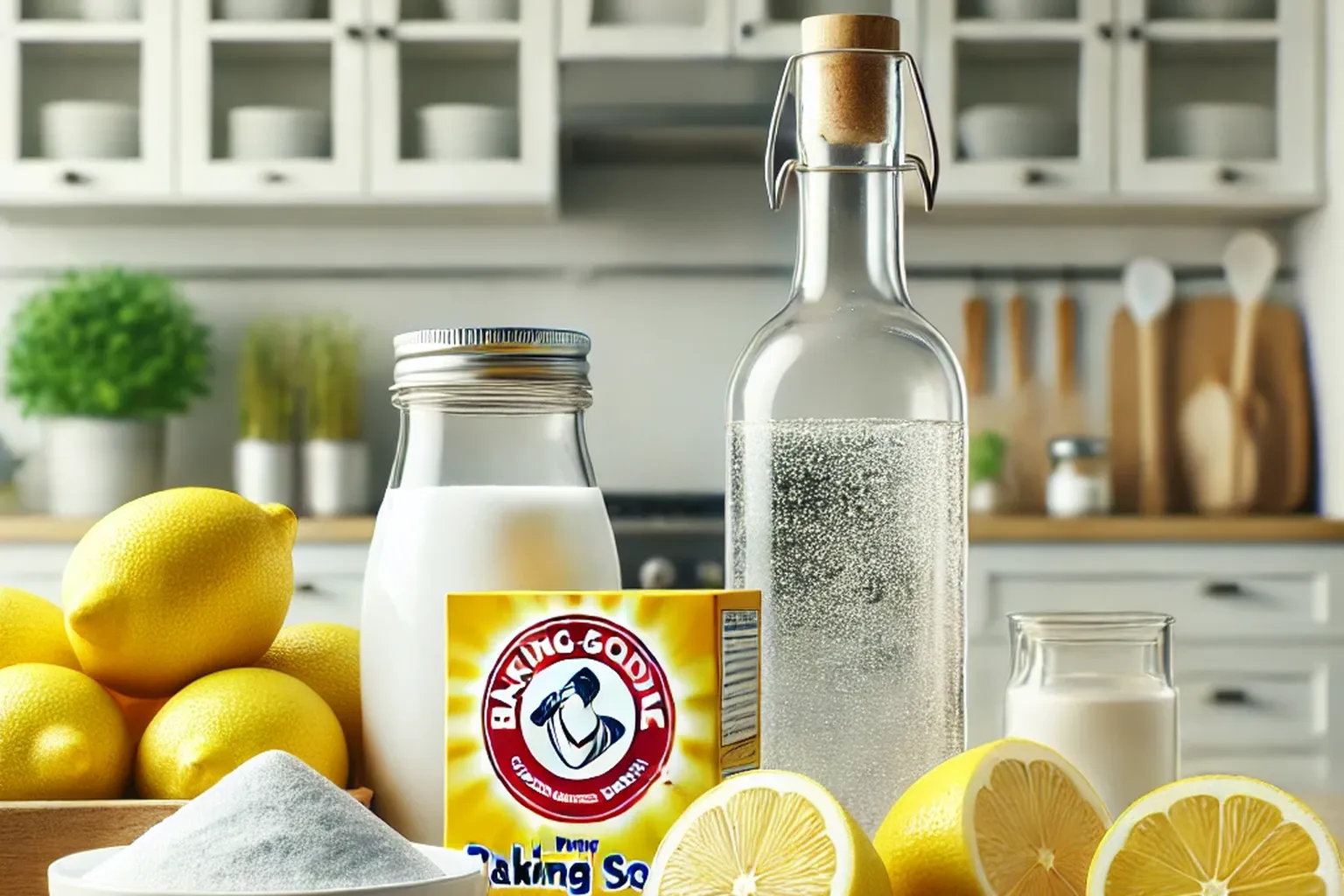home cleaning
Lesson 13: Eco-Friendly Cleaning – Detailed Steps
Eco-friendly cleaning is an excellent way to maintain a clean home while reducing environmental impact and avoiding harsh chemicals. This lesson provides detailed guidance on using natural cleaning agents and reusable materials to clean effectively and sustainably.
HC
HowClean
free Course
3418
Likes
3422
Recommends
3422
Helpfuls

Task 1: Use Natural Cleaning Agents
Vinegar:
- Properties:
- Vinegar is a natural disinfectant and degreaser, suitable for most surfaces.
- It’s effective in removing odors, stains, and soap scum.
- How to Use:
- Glass Cleaner: Mix 1 part white vinegar with 1 part water in a spray bottle. Use it to clean windows, mirrors, and glass surfaces.
- Countertops: Dilute vinegar with water (1:3 ratio) and wipe down kitchen counters and bathroom sinks. Avoid using vinegar on stone surfaces like granite or marble.
- Fabric Softener Alternative: Add 1/4 cup of vinegar to your laundry’s rinse cycle to soften clothes and remove odors.
- Caution:
- Test vinegar on a small, inconspicuous area before use on sensitive surfaces.
- Properties:
Baking Soda:
- Properties:
- Baking soda is a gentle abrasive and deodorizer, ideal for scrubbing and neutralizing odors.
- How to Use:
- Scrubbing Paste: Mix baking soda with water to form a paste for cleaning sinks, tubs, and grout. Apply the paste, scrub with a brush, and rinse thoroughly.
- Odor Removal: Sprinkle baking soda on carpets or upholstered furniture, let it sit for 15-30 minutes, then vacuum to remove odors.
- Drain Cleaner: Pour 1/2 cup of baking soda followed by 1/2 cup of vinegar down the drain. Let it fizz for 10-15 minutes, then flush with hot water.
- Caution:
- Avoid mixing baking soda with strong acids (other than vinegar) to prevent unwanted reactions.
- Properties:
Lemon:
- Properties:
- Lemon is a natural deodorizer and antibacterial agent with a fresh scent.
- How to Use:
- Cutting Boards: Rub a cut lemon over the surface of wooden cutting boards to remove stains and odors. Rinse with warm water.
- Microwave Cleaner: Heat a bowl of water with lemon slices for 3-5 minutes in the microwave. The steam loosens grime for easy wiping.
- Metal Polisher: Use lemon juice and a bit of baking soda to polish tarnished brass or copper.
- Properties:
Castile Soap:
- Properties:
- A biodegradable, plant-based soap that’s versatile for cleaning surfaces, floors, and even body care.
- How to Use:
- General Cleaner: Mix 1-2 teaspoons of castile soap with water in a spray bottle for an all-purpose cleaner.
- Mop Solution: Add a few drops of castile soap to a bucket of water for mopping floors.
- Properties:
Task 2: Opt for Reusable Cloths Instead of Disposable Wipes
Choose Reusable Cleaning Materials:
- Microfiber Cloths:
- Highly effective for trapping dust, grime, and bacteria without requiring chemical cleaners.
- Can be washed and reused multiple times, making them cost-effective and eco-friendly.
- Cotton Rags:
- Repurpose old T-shirts, towels, or linens into cleaning rags for wiping surfaces, spills, and polishing.
- Sponges and Scrubbers:
- Opt for washable, biodegradable sponges or natural fiber scrubbers (like loofah or coconut fiber).
- Microfiber Cloths:
Proper Maintenance of Reusable Cloths:
- Wash After Use:
- Rinse cloths immediately after use to remove debris and cleaning agents.
- Wash them with detergent in warm or hot water to disinfect.
- Avoid Cross-Contamination:
- Designate specific cloths for different areas (e.g., kitchen, bathroom, and dusting) to prevent the spread of germs.
- Air Dry:
- Hang cloths to air-dry thoroughly to prevent mold or odors.
- Wash After Use:
Reduce Disposable Wipe Usage:
- Replace Disposable Cleaning Wipes:
- Use a damp microfiber cloth with an all-purpose cleaner for wiping surfaces instead of single-use wipes.
- Replace Paper Towels:
- Opt for washable rags or cloth napkins for spills and cleaning.
- Replace Disposable Cleaning Wipes:
Pro Tips for Eco-Friendly Cleaning
- Buy in Bulk:
- Purchase natural ingredients like vinegar, baking soda, and castile soap in bulk to reduce packaging waste.
- DIY Cleaning Recipes:
- Experiment with DIY cleaning solutions tailored to your needs, like adding essential oils for fragrance or stronger antibacterial properties.
- Compostable Options:
- Use compostable sponges and cleaning pads to further reduce waste.
By using natural cleaning agents and reusable materials, you’ll maintain a clean home while supporting a healthier environment and reducing household waste.
